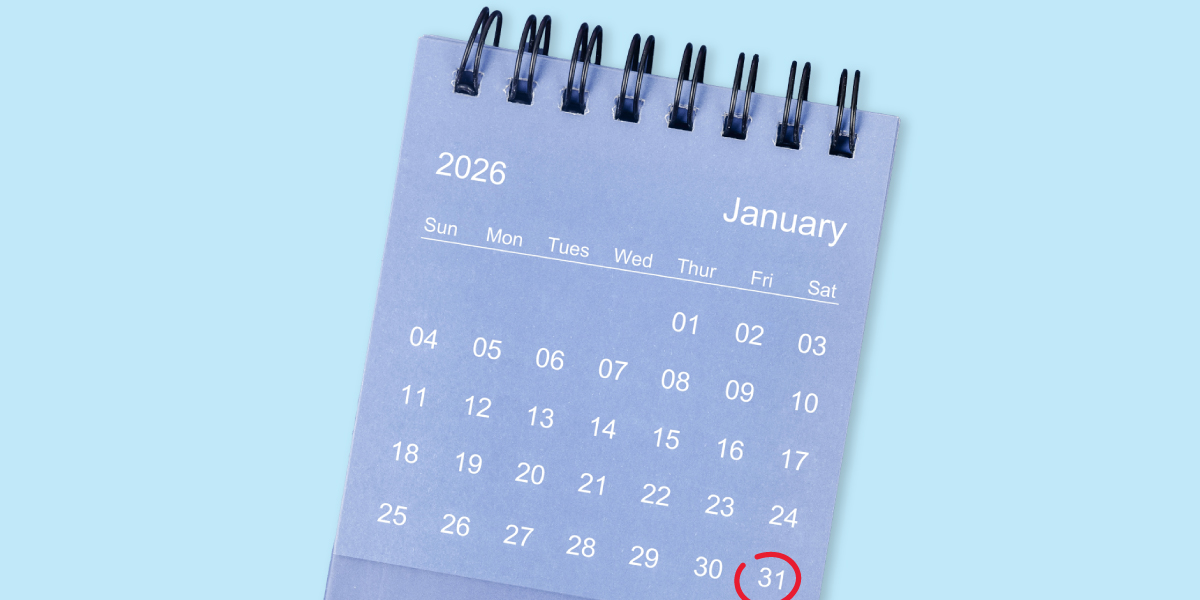
MEMBER EXCLUSIVE
Members can use GoSimpleTax to file to HMRC at a great price and avoid costly accountant fees.
Get started
Self-assessment taxpayers filing a paper return have just two weeks remaining until the deadline of 31 October. But don't panic if you miss this cut-off date, as you'll still have until 31 January to file online.
Given the extra time allowed for online filing, it's perhaps no surprise that the number of people filing paper returns has dropped by more than a quarter since 2021, with 97% of returns now submitted digitally.
However, that shouldn't be used as an excuse to put off your taxes until the New Year. Getting your return sorted early can save you stress and, importantly, money. Here are six compelling reasons why you should file now rather than wait until the last minute.
Whether you are filing a paper return or online, starting the process early means you can gather everything you need to file an accurate return by the deadline, without rushing and making a mistake.
First of all, you’ll need your National Insurance number and Unique Taxpayer Reference (UTR) number.
Other information and documents you should have to hand include your P60 form (if you’re employed), relevant receipts and invoices, bills, bank statements, tenancy agreements, student loan statements, and details of any benefits you’ve received.
Make sure you are clear about all your income streams, not just money made via employment. You might also need to pay tax on savings interest, pensions, dividends and capital gains.
Being an early bird means you'll know exactly how much you owe in tax before the final payment deadline of 31 January 2024.
Filing now gives you more than three months to budget for the bill; waiting until the last minute could mean you come up short when it's time to pay and may face a fine.
Self-employed taxpayers also need to budget for payments on account. These are due by 31 January and 31 July each year, with each instalment comprising half your tax bill from the previous year.
Payments on account apply unless your last self-assessment tax bill was less than £1,000, or you’ve already paid more than 80% of all the tax you owe – for example, through your PAYE tax code.
You can claim a refund up to four years after the end of the tax year it relates to, but it won't be processed until HMRC receives the tax return. If you file now, when the tax office is likely to be quieter, you should get the money back sooner than if you wait until a busy time of year, such as January.
If you think you're owed a refund, you can go through HMRC's step-by-step process. You'll be asked what you paid too much tax on, before being taken through a series of questions to find out more about your circumstances.

Members can use GoSimpleTax to file to HMRC at a great price and avoid costly accountant fees.
Get startedYou won't be fined for missing the paper return deadline, but if you fail to file before the final cut-off date of 31 January, you could face an initial £100 penalty.
You may also be charged interest from the date the payment was due, which is set at 7.5%. The longer you leave it, the higher the fine and the interest incurred.
HMRC can also impose fines for errors, with penalties based on the amount of tax you owe and the kind of error HMRC deems you to have made. For example, it could rule that you've simply made a careless mistake or judge the error as a deliberate attempt to hide something.
Claiming tax reliefs and allowances can knock money off your self-assessment bill. Starting your return now means you'll have more time to take advantage of any unclaimed allowances from previous financial years.
You have until 31 January 2025 to tweak your 2023-24 tax return, so if there are any allowances you forgot to take advantage of in the last financial year, then this is your last chance to do so. This could include allowances for working from home or pension contributions.
Once you’ve filed your return, you can amend it anytime from 72 hours after you’ve filed it until January 31, 2026.
You can claim a refund up to four years after the end of the tax year it relates to, but if you want to amend a tax return for 2021-22 or earlier, you'll need to write to HMRC and make a claim.
If you're finding any part of the process difficult or need to ask a question about self-assessment, you can call HMRC on 0300 200 3310.
Now is the ideal time to pick up the phone and ask for help. Calling later in the year and just before the deadline in January could mean you're hanging on the phone for a lot longer. A damning report by the National Audit Office earlier this year showed customers were left waiting an average of nearly 23 minutes in the first 11 months of 2023-24.
Thankfully, HMRC also has video tutorials and prerecorded webinars to help. You can also use its 'digital assistant' tool to ask for technical support, with questions such as 'how to file your tax return'.
Which? also has a range of guides on the different taxes you might need to pay and how to take the pain out of the process of filing a tax return.